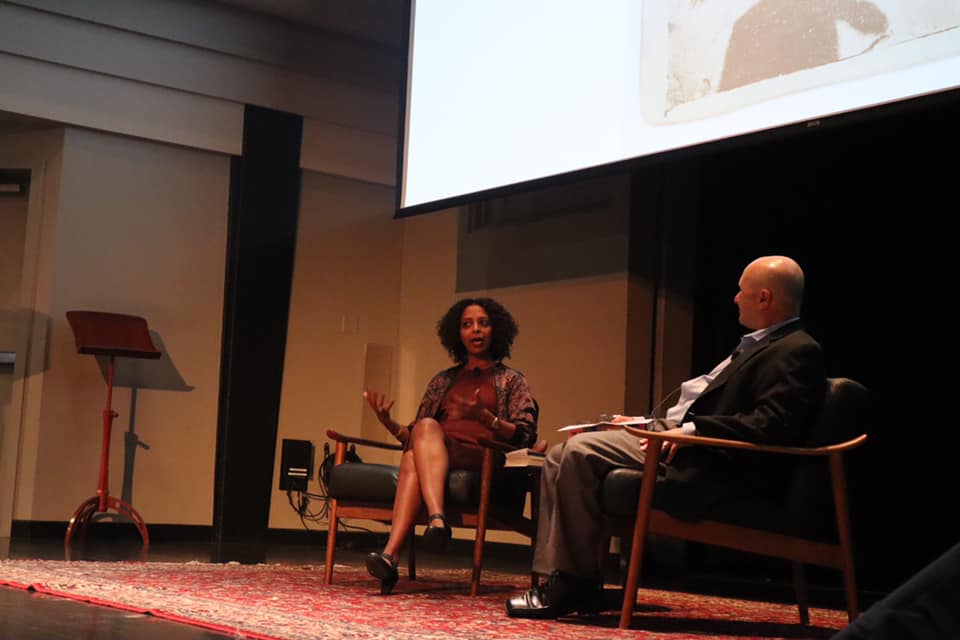


The Shadow King
The first photograph was that of an Ethiopian man huddled in folds of clothes, standing next to a white man, and the shadow of the photographer lurking beneath them. “You can see the power dynamics clearly through the picture,†Maaza Mengiste comments at her session in JLF Colorado. The second photograph is that of a young girl’s innocent and intense gaze. “When I saw this picture, I saw Hilut.†The third photograph was a woman soldier posing before her horse. “She has her shoes on, although all Ethiopian soldiers went barefoot, which is what makes this photo so cute.â€
Ethiopian-born author Maaza Mengiste’s new book incorporates photography and plenty of other elements to define a new narrative of history. ‘The Shadow King’ is a story about the Ethiopian Revolution. The book took Maaza many years to write because she sought to look into the shadows for details and perspectives that were hidden in the common narratives of history. She had grown up hearing stories where poorly-equipped Ethiopian soldiers triumphed against the powerful Italian army. However, she wondered about the day-to-day life of people fighting in the war. And while many volunteered, some people ended up in the war as servants who were forced into the war by their employers. What were their perceptions of war?
Maaza was inspired to create a female narrative of the Ethiopian Revolution. “Women always have to deal with a double war, in every type of confrontation.†Over the years, she saw snippets of female soldiers in stories and photos, including her great-grandmother, who had joined the war against her father’s wishes. Her book’s main narrative focuses on the war journey of a young servant girl Hilut. Maaza says that “When she entered the war, she had no idea who was Italy. The reader learns as she learns.â€
Maaza tries to show in her writing that just like in any one case, there are multiple perspectives, there are many dimensions to war. “Wars are decisions made by human beings in shiny offices, and then they send other human beings and it becomes clashes of bodies.†“The people fighting don’t care about ideologies. Then and there they just want to survive.†And in such irrational circumstances, people are striving in their minds to become rational again. The effects of war can also be seen in another light. Maaza explains, “Ethiopian society was determined by class. If you were born poor you stayed poor. No upward mobility. When War comes, war disrupts everything.†After the country fell into war, Hilut’s perception of her former employers changed; she realized they now had to defend themselves the way she used to do. A war exposes the “vulnerability of social classesâ€, and gives some people the “freedom to do what they couldn’t have done beforeâ€.
Maaza believes that “History is nothing more than a series of narratives recorded by people who are biased and fallible.†So she writes her own narrative of war, filled with unseen perspectives, photographs, choruses and much more. Follow ‘The Shadow King’ on Instagram to see more of her collection of photographs that tell stories on their own. And read Maaza’s book to gain the power of constantly reading between the lines and searching in the shadows for a truthful picture of whatever you are trying to make sense of, be that history, present or future.



Leave a comment